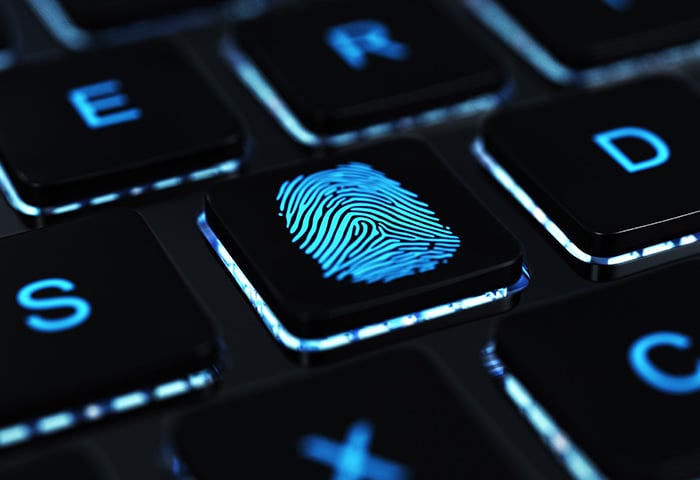What is a keylogger?
Short for keystroke logger, a keylogger is monitoring software or hardware designed to record what you write. It could be either a program on your computer or a small device connected to your PC and keyboard, which keeps track of everything you’ve been typing.
This allows hackers to steal valuable information like:
-
your usernames and passwords
-
your credit card number and verification code
-
your entire chat history
-
a list of the websites you’ve visited
-
applications you’ve used
-
documents you’ve opened
-
screenshots of your activity

But keyloggers weren’t originally intended for stealing personal data. In fact, monitoring software is legal and widely available online. Creepy and unsettling? You bet! Keyloggers are used by companies to check up on employees, by suspicious spouses looking to catch their partners cheating, and even by parents who want to know what their kids are up to.
How does a keylogger get on your PC?
Keyloggers are not illegal — we’ve covered that. It’s what you do with them that makes the difference. For instance, if company policy says so, the IT guys at your office might pre-install one on your work laptop to monitor your productivity. You may not like it, but it’s not illegal.
In the wrong hands, keyloggers can do a lot of damage. If you have the habit of leaving your personal computer unlocked at home or at a cafe, anyone who happens to be nearby can quickly install a keylogger when you’re not looking, and use it to steal your data.

Just like any other malware, keylogging software spreads mostly via the Internet, often as part of Trojans. Trojans are programs disguised as useful tools, which in reality contain malware that gets installed on your computer without your knowledge. Once installed, keyloggers run in the background, recording all your keystrokes.
The stolen information is usually encrypted and sent to a public message board, where hackers can download it without being tracked down.
How to detect and remove keyloggers
It’s difficult to find out if you have keylogging software on your PC, because it looks like you’re running a legit program. Here’s how you can detect keyloggers on your computer:
-
Look for keyloggers in your running processes - Open Windows Task Manager and look for anything suspicious. This will give you a complete overview of apps running on your PC, so unfortunately it only works if you’re tech-savvy enough to recognize the keylogger.
-
Check your firewall’s activity log for anything suspicious - Use a firewall to check and control what goes in and out of your computer. Keyloggers send your data to a remote location, but they need an Internet connection to do that, so everything sent out will show up in your firewall’s activity log.
-
Scan and remove keyloggers with an antivirus - Rather than manually going through a long list of apps and processes yourself, scan your computer with an antivirus or a reliable keylogger detection app. This is the quickest and easiest way to find and remove suspicious programs on your computer.
But what about keylogging hardware? These are small gadgets connected between your keyboard and your PC. They often look like adaptors and appear to be part of the normal hardware setup, so you’d hardly ever notice them if you didn’t know what to look for. Make sure to check your keyboard, especially if you’re using a public computer, and remove any suspicious-looking knick-knacks.
How to protect yourself from keyloggers

The best way to protect yourself from keyloggers is to stay away from untrusted apps on the Internet. They might seem useful, and they’re probably even free, but unless they come from a reliable source you shouldn’t install them.
Here’s how you can keep your computer keylogger-free:
-
Always use an antivirus to prevent suspicious apps from being installed on your computer without your knowledge. Our own AVG AntiVirus FREE detects and blocks malware in real-time and protects you from the latest threats, absolutely free.
-
Set up Firewalls to block unauthorized apps from accessing the Internet. If you’re using AVG Internet Security, here’s a step-by-step guide on how to set up your Firewall.
-
Lock your PC. Hopefully no one in your household has any trust issues, but just in case, lock your PC when you’re not there. This way, no one can get access to your computer when you’re not looking.
-
Be careful on public or shared computers. Don’t access your banking, email, or social media accounts from public or shared computers, and don’t send any sensitive information via chat either. It’s always a good idea to check for keylogging hardware, too.
-
Use a reliable password manager to access your accounts quickly and safely, without having to type in your details every time. This way keyloggers won’t be able to steal your login info.
We hope this article has helped you understand how keyloggers work, why they’re dangerous, and how to protect your personal data. The more you learn about malware and how it gets on your computer, the easier it is to stay safe. Make sure to check out some of our other helpful articles.


















